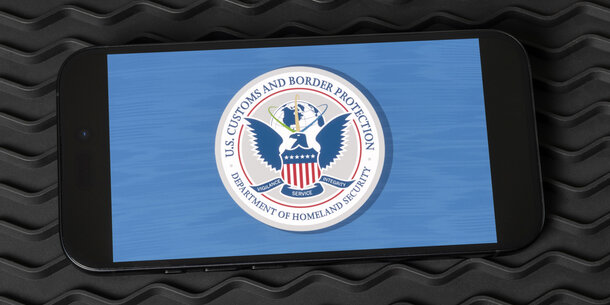Social Media for Investigative and Intelligence-Gathering Purposes (2021)
Contemplated uses for social media (other than public-facing use)
The policy endorses the use of social media for investigations and intelligence gathering, including through the use of undercover accounts, but it does not detail contemplated uses.
Processes for non-covert uses of social media
Authorization requirements for general use of social media
The policy permits overt monitoring, searching, and collecting of information available in the public domain for “any legitimate law enforcement purpose,” with no supervisor authorization required. In the context of overt use, which the policy does not define, department employees may use “fictitious accounts created to monitor social media” as long as they do not use those accounts to “engage in conversation.”
Requirements for non-investigative uses of social media
The policy does not impose requirements for non-investigative uses of social media.
Requirements for investigative uses of social media
The policy prohibits department employees from posting “content that is disparaging to a person or group based on race, color, religion, national origin, [or] sex,” among other characteristics. It also states that if an employee becomes aware that an online alias account has become compromised, they must notify their supervisor.
Processes for covert or undercover uses of social media
Authorization for covert uses of social media
The policy states that under certain (undefined) circumstances, members of five MPD units — the Criminal Investigations Division, the Intelligence Division, the Internal Affairs Division, the Narcotics and Special Investigations Division (NSID), and the Youth and Family Services Division — may request approval to use undercover accounts on social media “in the course of legitimate criminal investigations or intelligence collection efforts related to public safety or potential criminal activity.” Members of these units must obtain approval from the NSID commander through the chain of command prior to using or creating an undercover account. Commanding officials are instructed to monitor the use of undercover accounts and to conduct a documented review of all accounts every 30 days, and NSID should maintain a centralized registry of all active undercover social media accounts.
Requirements or limitations on covert uses of social media
The policy requires department employees to complete training before using an undercover account. It makes clear that department employees using an undercover account can only participate in conversations with a subject when the employee is physically located in the District of Columbia to ensure compliance with one-party consent laws. If a department employee becomes aware that an online alias account has become compromised, they must notify their supervisor. Department employees may not “post content that is disparaging to a person or group based on a variety of characteristics,” including race, color, religion, national origin, or sex.
Explicit prohibitions on use of social media (other than those outlined above)
The policy does not detail additional prohibitions on department employees’ use of social media.
Language governing use of personal devices or accounts
The policy prohibits department employees from using undercover social media accounts on personal devices. It states that department employees can only use department or federal law enforcement equipment, and it prohibits employees from using personal social media accounts or personal information to access content that is being used in investigation or intelligence-gathering effort.
Discussion of constitutional rights
The policy instructs department employees to adhere to the policies set forth in MPD’s procedures for investigations involving First Amendment activity when social media investigations overlap with First Amendment–protected activities. MPD has not produced or published these procedures, but a section of the DC code on investigations involving First Amendment activities requires obtaining written authorization from MPD personnel with commander rank or above to undertake a preliminary inquiry or a criminal investigation involving First Amendment activities for a legitimate law enforcement objective. Department employees may undertake preliminary inquiries without prior authorization in limited circumstances, including to gather information about future assemblies. The code also states that MPD will safeguard the constitutional rights of all persons in all such investigations, including by adopting minimization procedures in all investigations and preliminary inquiries involving First Amendment activities.
The DC code also requires authorizations for investigations and preliminary inquiries involving First Amendment activities to be reviewed every 90 days by a panel of MPD commanding officers. The chief of police must prepare an annual report for the DC mayor and City Council regarding investigations and preliminary inquiries involving First Amendment activities. The report, at a minimum, should detail the number of authorized and denied investigations, the number of law enforcement actions (e.g., arrests and prosecutions) taken as a result of such investigations, and any violations of DC law by department employees during investigations. The Office of the DC Auditor also audits investigations and preliminary inquiries involving First Amendment activity on an annual basis.
Criminal Research Specialist Social Media Use (2014)
Contemplated uses for social media (other than public-facing use)
Criminal research specialists provide research and obtain data to assist MPD investigators working in the field, which includes surveillance and social media data to identify and locate suspects.
Processes for non-covert uses of social media
Authorization requirements for general use of social media
Though the policy does not include an authorization requirement for general uses of social media, it states that criminal research specialists may only use social media to seek information based on a criminal predicate or threat to public safety, to assist in investigations and prosecutions, or for inclusion in criminal analysis and situational awareness reports.
Requirements for non-investigative uses of social media
The policy does not impose requirements for non-investigative uses of social media.
Requirements for investigative uses of social media
The policy states that after major incidents (e.g., homicides and shootings), criminal research specialists should attempt to obtain information from social media about the victims and suspects, which they should relay to the investigating detective in a preliminary investigative report. They should also document the method they used to find the information, the link to the information, and relevant screenshots. (The policy notes that the detective is ultimately responsible for determining the accuracy, validity, and/or authenticity of the information.) Information that criminal research specialists find may not be submitted as evidence; the detective must subpoena the information for it to be admissible in court. Unless approved by the criminal research specialist supervisor, social media postings may not be disseminated to outside agencies.
Processes for covert or undercover uses of social media
Authorization for covert uses of social media
The policy authorizes criminal research specialists to use specified accounts that are solely used for monitoring and viewing “open” profiles. It prohibits interaction with the subjects or groups they are monitoring.
Requirements or limitations on covert uses of social media
The policy does not impose requirements for covert uses of social media.
Language governing use of personal devices or accounts
The policy states that criminal research specialists should not use personal accounts to perform searches on social media; they should only use specified accounts to search publicly available information via social media sites.
Explicit prohibitions on use of social media (other than those outlined above)
The policy states that criminal research specialists may not change or alter department social media accounts in any way unless instructed to do so by the criminal research specialist supervisor. It also states that department social media accounts are only to be used for work-related purposes.
Discussion of constitutional rights
The policy does not include language addressing the possible impact of collecting or viewing social media on individuals’ or groups’ constitutional rights.



